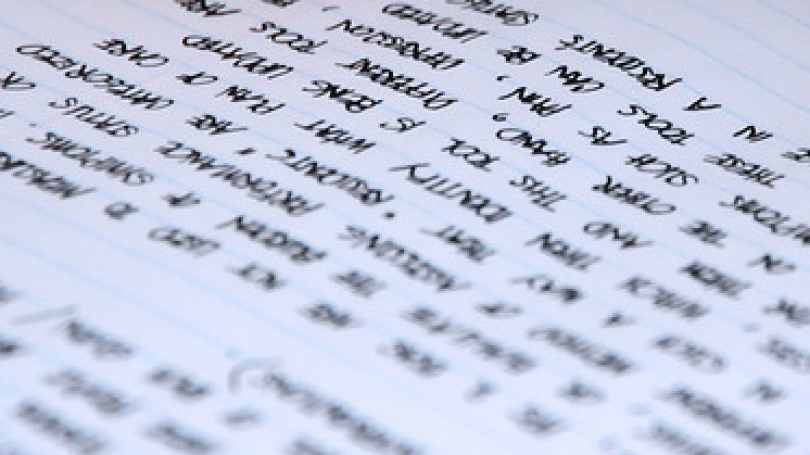Adedoyin Ogunfeyimi joined the faculty this winter for a one-year position. Ogunfeyimi earned bachelor's and master's degrees in English at the University of Lagos in Nigeria, where he focused on discourse analysis and the relationship between language and power. After completing his studies in Nigeria, Ogunfeyimi earned a doctorate in English at the University of Wisconsin at Madison where he was a Fulbright scholar and Walter J. Vollrath distinguished fellow.
Director Christiane Donahue notes that Ogunfeyimi will combine teaching as a primary responsibility with a scholarly agenda focused on research that builds knowledge about Dartmouth student learning.
In his teaching with the Institute, Ogunfeymi plans to develop courses that provide students the opportunity to make use of their lived experiences "as ways of navigating, understanding, and reshaping academic discourses." He will also carry this pedagogical concern into a research project using the vast troves of data collected through the Institute's various research initiatives. Ogunfeymi will use these collections to examine the role of pleasure and gratification in the success of student writers and whether the lived experience of student writers has broader consequences on student learning and knowledge transfer.
"My aim in this project," he writes, "is to link purpose and pleasure to consequential learning experiences . . . . I will employ discourse analysis with an emphasis on grammatical categories—lexis, phrase, clause, and sentence—to map out recurring linguistic features that underscore such relations. I hope to show through this study that interests and successes in college writing often rely on how student writers construct purpose and express pleasure in and about their academic work, and that gaining this understanding might aid and shape a successful college writing curriculum design."
Professor Ogunfeyimi also pursues a variety of other research interests in critical discourse analysis (CDA), environmental and conciliatory rhetoric; Bakhtinian dialogism; pedagogy and power; intersection of pragmatics, hermeneutics, and apologetics; deliberative research writing; rhetorical theory and history; social movement rhetoric; and public writing.
"It is quite exciting to see a faculty member delve into our extensive data and pursue such a compelling line of inquiry," said Director Donahue. "We look forward to hearing about his analyses."
